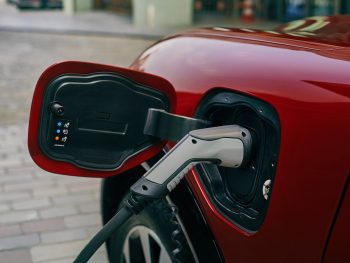EV-based salary sacrifice to be key element in new benefits initiatives, says Arval
EV-based salary sacrifice is to have a central role in a new wave of employee benefits, bringing key attractions for drivers but with minimal investment for employers.

While current interest in EV salary sacrifice is very high, it shows every sign of growing further as general awareness and acceptance of EVs continues, says Arval
So says Arval as it reports fast-rising take-up of its Arval Ignition salary sacrifice scheme, which is chiefly being used now to access electric vehicles.
Its latest research shows electric vehicles make up almost nine out of 10 (89%) of cars leased on the scheme – up from 39% two years ago.
At the same time, the total number of cars provided through the ‘Arval Ignition’ scheme has also rocketed – up by 252%.
Arval added that while the current level of interest was very high, it shows every sign of growing further as general awareness and acceptance of zero-emission EVs continues.
“What we are seeing emerging is a definite future mobility role for EV-based salary sacrifice as a key element in a wave of new benefits initiatives that are designed to bring innovative options and ideas into play for employees, with only a very limited investment required by their employer,” said Richard Cox, consultant at Arval UK.
He added that the meteoric rise in demand – amongst both existing clients and new users – was the result of a number of factors, but chiefly taxation.
Cox continued: “The single biggest reason behind the rise of the EV-centred salary sacrifice scheme in the last couple of years has been the introduction of zero- and very low-rate Benefit-in-Kind taxation rates, meaning that the latest, most advanced and environmentally friendly cars can be offered to employees at extremely attractive monthly rates.
“In these circumstances, Ignition fits not just the needs of people who would like a company car and do not currently qualify for one, but also often employees who have taken a cash allowance option and are looking for alternative car provision.”
Other factors that have boosted demand for salary sacrifice include an ongoing reluctance by employees to use public transport for commuting and business trips. Rather than allowing such drivers to use their own ‘grey fleet’ vehicles, salary sacrifice enables employers to retain control of safety and environmental aspects.
Also notable is the fact that Arval’s clients have been very keen ensure that their programmes weren’t interrupted by the coronavirus crisis – and that negotiations and implementation had continued during successive lockdowns due to the efficacy of the scheme.
“To us, this is one of the biggest strengths of salary sacrifice at this point in time – it provides a range of genuine advantages to employers and employees, with no real downsides or compromises, whatever the future brings. We expect that the interest we are currently seeing to continue into the remainder of 2021 and well beyond. While Benefit-in-Kind rates on EVs remain low, these schemes are extremely viable.”

















